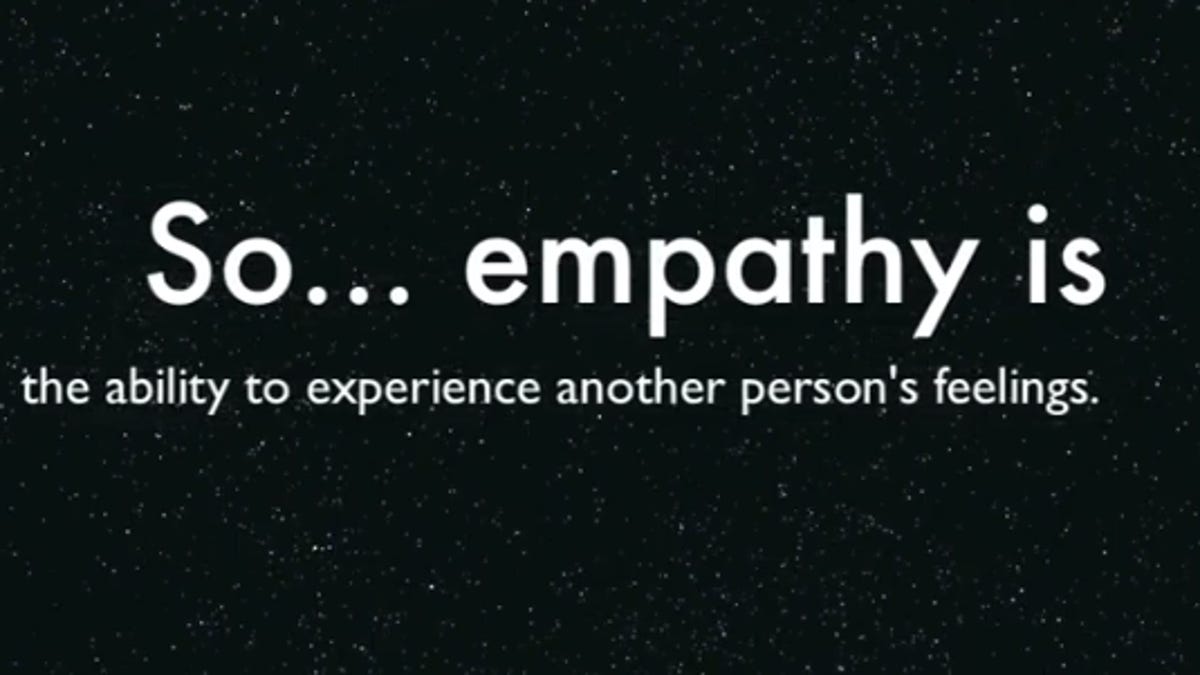Eureka! Engineers aren't empathetic because they can't be
Research suggests that analytic thought is impaired by empathy, just as empathy is impaired by analytical thought. Who'd have thought?

To those of us who are human, a lack of empathy from others can be quite startling.
A lover says to us: "Oh, your mother's death made you sad? Why didn't you say?" We look at them and think: "You should never have studied engineering. Or math. Or business."
Now presumably uncaring scientists have delved into the roots of this issue and emerged, tousle-haired, with a fascinating conclusion: Empathy represses analytic thought.
This explains so much -- especially Google.
As Science Daily feels it out, research led by an unfeeling brain at Case Western Reserve University in Ohio suggests that the effect works both ways.
The minute our empathy neurons slide into a forward gear, our analytical neurons go off for a drunken lunch in the pub.
Normally, our poor addled brains attempt to maintain a balance between these two competing kin. But when we're faced with a problem we tend to choose a road more (or less) traveled.
Once we've done that, the other prong of the road's fork might as well be a toothpick.
Please bathe in this quote from Anthony Jack, assistant professor of cognitive psychology at Case Western:
Scientific accounts really do leave something out -- the human touch. A major challenge for the science of the mind is how we can better translate between the cold and distant mechanical descriptions that neuroscience produces, and the emotionally engaged intuitive understanding which allows us to relate to one another as people.
This explains the creation of so many gadgets, so many pieces of software and so much wasted effort on the part of so many engineers.
It surely explains why Microsoft is only now emerging with products that seem exciting to living, breathing humans.
It explains why men in glasses stand at the periphery of parties, fiddling with their Nokias.
It explains why so much advertising for cell phones talks about, sigh, features.
Jack and his fellow researchers were so excited by their findings that they even extended it to consider moral dimensions.
He told Science Daily: "You want the CEO of a company to be highly analytical in order to run a company efficiently, otherwise it will go out of business. But, you can lose your moral compass if you get stuck in an analytic way of thinking."
Might he possibly, maybe have been thinking about Facebook when he said this? Or might he merely have been feeling Facebook?
I am sure that this research is merely the beginning of helping humans find a way for their two neural networks to behave in concert.
But it surely indicates a hope that engineers and other fine rational thinkers can prosper in their personal relationships -- and also in their work.
Stop trying to solve the problem rationally, breathe deeply, open your eyes and heart -- and feel.
You might even get people to adopt your designs that way. Just look at how Google is now creating cuddly, tear-jerky advertising in order to sell its wares.
There is hope, left-brainers, there is hope.

